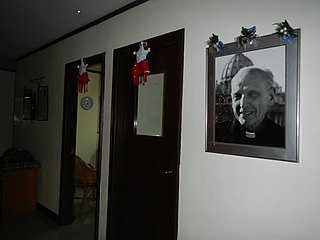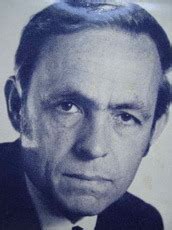A Quote by William Ralph Inge
The strongest wish of a vast number of earnest men and women to-day is for a basis of religious belief which shall rest, not upon tradition or external authority or historical evidence, but upon the ascertainable facts of human experience. The craving for immediacy, which we have seen to be characteristic of all mysticism, now takes the form of a desire to establish the validity of the God-consciousness as a normal part of the healthy inner life.
Quote Topics
Authority
Basis
Belief
Characteristic
Consciousness
Craving
Day
Desire
Earnest
Establish
Evidence
Experience
External
Facts
Form
God
Healthy
Historical
Human
Human Experience
Immediacy
Inner
Inner Life
Life
Men
Men And Women
Mysticism
Normal
Now
Number
Part
Religious
Religious Belief
Rest
Seen
Shall
Strongest
Takes
Tradition
Validity
Vast
Which
Wish
Women
Related Quotes
Of course, mysticism is very hard to isolate because, given the kind of consciousness that I was sort of instructed in as religious consciousness; that borders on mysticism so closely that it's hard to know whether you qualify or not, or whether mysticism is artificially isolated when it is treated as a separate thing from experience. Obviously, mysticism can be a form of madness, but then consciousness can be a form of madness.
Dialectical logic undoes the abstractions of formal logic and of transcendental philosophy, but it also denies the concreteness of immediate experience. To the extent to which this experience comes to rest with the things as they appear and happen to be, it is a limited and even false experience. It attains its truth if it has freed itself from the deceptive objectivity which conceals the factors behind the facts - that is, if it understands its world as a historical universe, in which the established facts are the work of the historical practice of man.
Mysticism, according to its historical and psychological definitions, is the direct intuition or experience of God; and a mystic is a person who has, to a greater or less degree, such a direct experience -- one whose religion and life are centered, not merely on an accepted belief or practice, but on that which the person regards as first hand personal knowledge.
The only way of expressing emotion in the form of art is by finding an "objective correlative"; in other words, a set of objects, a situation, a chain of events which shall be the formula for that particular emotion; such that when the external facts, which must terminate in sensory experience, are given, the emotion is immediately evoked.
...any belief in supernatural creators, rulers, or influencers of natural or human process introduces an irreparable split into the universe, and prevents us from grasping its real unity. Any belief in Absolutes, whether the absolute validity of moral commandments, of authority of revelation, of inner certitudes, or of divine inspiration, erects a formidable barrier against progress and the responsibility of improvement, moral, rational, and religious.
the scientist's religious feeling takes the form of a rapturous amazement at the harmony of natural law, which reveals an intelligence of such superiority that, compared with it, all the systematic thinking and acting of human beings is utterly insignificant reflection. This feeling is the guiding principle of his life and work, in so far as he succeeds in keeping himself from the shackles of selfish desire. It is beyond question closely akin to that which has possessed the religious geniuses of all ages.
This "new" idea of God proposes that all the characteristics traditionally attributed to the purely external God are, in an important sense, attributes of this inner force of consciousness. When this inner energy of higher consciousness is experienced, it then becomes clear that such an energy permeates the entire universe. In this way, it is through self-knowledge that the existence of an external God is verified and understood.
Mysticism is: a. An advanced state of inner enlightenment. b. Union with Reality. c. A state of genuinely satisfying success. d. Insight into an entirely new world of living. e. An intuitive grasp of Truth, above and beyond intellectual reasoning. f. A personal experience, in which we are happy and healthy human beings.
Today our (Society of Jesus) prime educational objective must be to form men (and women) for others; men (and women) who will live not for themselves but for God and his Christ - for the God-man who lived and died for all the world; men (and women) who cannot even conceive of love of God which does not include love for the least of their neighbors; men (and women) completely convinced that love of God which does not issue in justice for others is a farce.
In the dominant Western religious system, the love of God is essentially the same as the belief in God, in God’s existence, God’s justice, God’s love. The love of God is essentially a thought experience. In the Eastern religions and in mysticism, the love of God is an intense feeling experience of oneness, inseparably linked with the expression of this love in every act of living.
Rediscovering the controversies that occupied early Christianity sharpens our awareness of the major issue in the whole debate, then and now: What is the source of religious authority? For the Christian the question takes more specific form: What is the relation between the authority of ones own experience and that claimed for the scriptures, the ritual and the clergy?
All doctrines relating to the creation of the world, the government of man by superior beings, and his destiny after death, are conjectures which have been given out as facts, handed down with many adornments by tradition, and accepted by posterity as "revealed religion". They are theories more or less rational which uncivilised men have devised in order to explain the facts of life, and which civilised men believe that they believe.
The 'coming of the Self' is immanent; and the process of collective 'individuation' is living itself out in human history. One way or another, the world is going to be made a single whole entity. But it will be unified either in mutual mass destruction or by means of mutual human consciousness. If a sufficient number of individuals can have the experience of the coming of the Self as an individual, inner experience, we may just possibly be spared the worst features of its external manifestation.


































